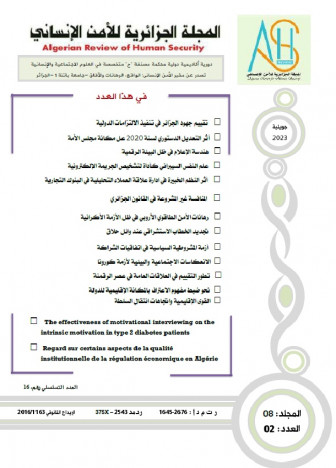The United Nations Management of International Crises: Between the Non-Intervention issue and the Humanitarian intervention problem.
DOI:
https://doi.org/10.59791/arhs.v6i2.1001Keywords:
United Nations, Crisis Management, International Crises, Non-Intervention, humanitarian InterventionAbstract
This study aims to find out how the United Nations managed international crises in light of the bilateralism based on the nonintervention issue and the granted national sovereignty on the one hand, and the problems arising from the humanitarian intervention on the other hand. The performance of the United Nations was dissimilar through the criteria of duplication and selectivity in managing international crises. During the Cold War, the competition between the two superpowers prevailed, which affected the performance of the United Nations; while the post-Cold War period produced new security threats that put human security at stake. This led to the emergence of the humanitarian intervention as a mechanism for managing international crises; in parallel, it created many problems especially in light of the American dominance over the world. In this study, both, the historical and the content analysis methods were used. The analysis led to the conclusion that the United Nations role and performance was influenced by the intervention of the major powers. Consequently, its performance was characterized by duplicity and selectivity in dealing with various international crises.




